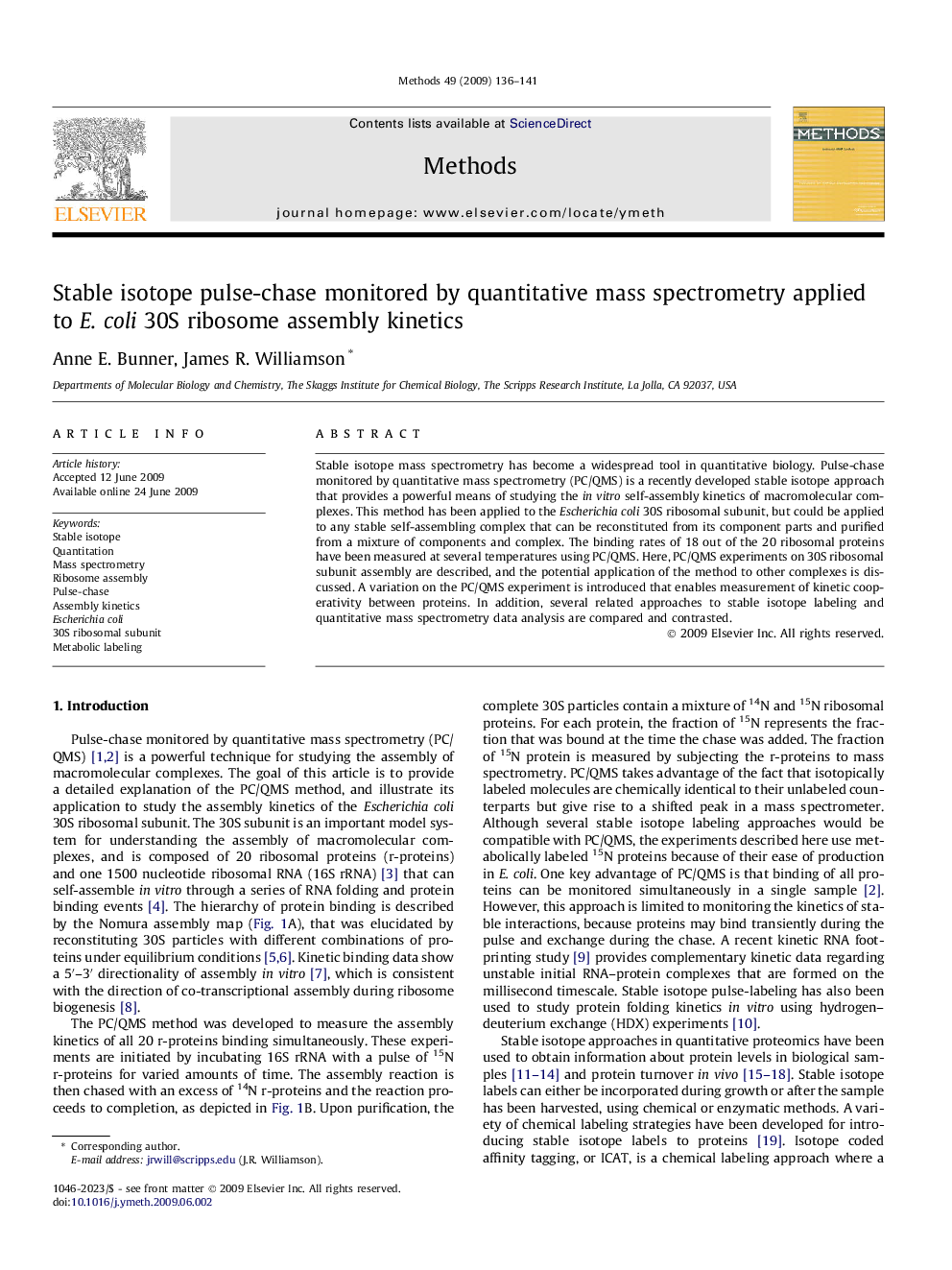| Article ID | Journal | Published Year | Pages | File Type |
|---|---|---|---|---|
| 1994088 | Methods | 2009 | 6 Pages |
Abstract
Stable isotope mass spectrometry has become a widespread tool in quantitative biology. Pulse-chase monitored by quantitative mass spectrometry (PC/QMS) is a recently developed stable isotope approach that provides a powerful means of studying the in vitro self-assembly kinetics of macromolecular complexes. This method has been applied to the Escherichia coli 30S ribosomal subunit, but could be applied to any stable self-assembling complex that can be reconstituted from its component parts and purified from a mixture of components and complex. The binding rates of 18 out of the 20 ribosomal proteins have been measured at several temperatures using PC/QMS. Here, PC/QMS experiments on 30S ribosomal subunit assembly are described, and the potential application of the method to other complexes is discussed. A variation on the PC/QMS experiment is introduced that enables measurement of kinetic cooperativity between proteins. In addition, several related approaches to stable isotope labeling and quantitative mass spectrometry data analysis are compared and contrasted.
Keywords
Related Topics
Life Sciences
Biochemistry, Genetics and Molecular Biology
Biochemistry
Authors
Anne E. Bunner, James R. Williamson,
